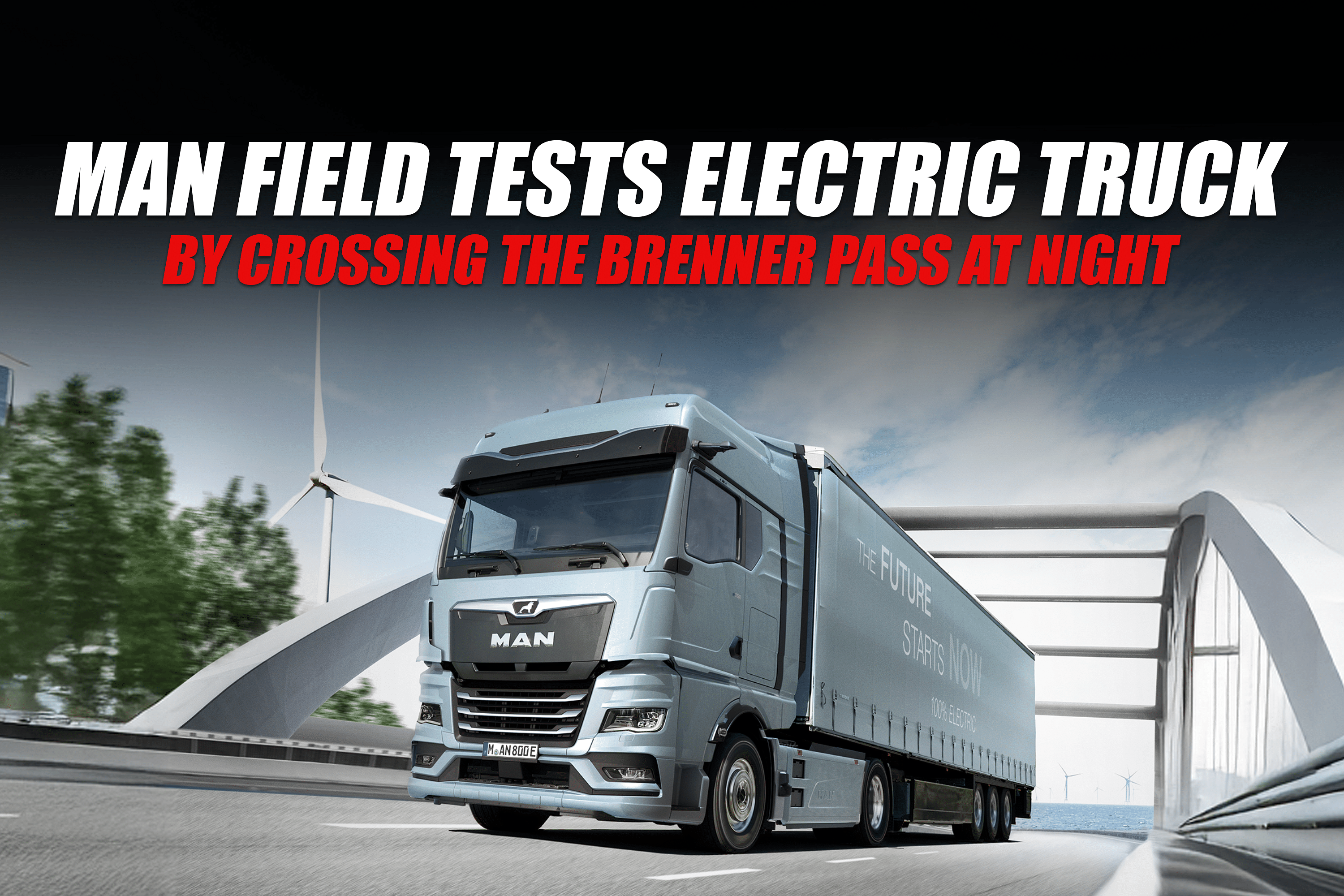Man truck & Bus Company and leading logistics company Spedition Dettendorfer have partnered to launch a four-week field test aimed at demonstrating the benefits and practicality of electric trucks. The test route? The demanding yet vital Brenner Pass, a key corridor connecting Italy and Austria through the Alps, and one of the busiest freight routes in Europe.
Night-Time Drive Through the Alps
Leveraging a unique advantage granted since 2021, fully electric trucks are currently exempt from the night-time driving ban on the Inntal motorway (A12). Dettendorfer, using MAN’s newly launched eTruck, is putting this regulation to the test during July and August, aiming to reduce traffic congestion and evenly distribute transport flows across day and night.
The night-time run between Bolzano and Innsbruck, part of the Munich-Verona corridor, is especially well-suited to electric logistics. With summer temperatures and a single charging stop, MAN’s battery-electric tractor unit can achieve a daily range of up to 800 kilometres, easily covering the transalpine leg in one night.
Electric Truck Benefits: Sustainability Meets Economics

Electric trucks are more than just eco-friendly—they’re cost-effective too. MAN reports that an electric tractor unit driving 110,000 km annually can save around 95 tonnes of CO₂ per year. Multiply that by 300 trucks and you’re looking at a potential reduction of 28,000 tonnes of CO₂ emissions annually—an enormous stride for sustainable transport in Europe.
The CO₂ savings, however, are only one side of the equation. From an economic standpoint, electric heavy-duty logistics offers compelling cost advantages. With no road tax for ten years and reduced toll rates—up to 75% less at night in Austria and full exemption in Germany until year-end—operators can save up to €60,000 annually in toll fees. Even after reductions phase in, the overall cost advantage remains strong.
“In terms of total cost of ownership,” MAN notes, “an electric truck on this route is already 15% more economical than a conventional diesel truck over a standard three-year service life.”
Recuperation and Reduced Noise: Built for Alpine Terrain
One of the standout features of electric trucks is recuperation—energy recovery during braking. On mountainous routes like the Brenner Pass, recuperation rates go up to 40%, which significantly increases the efficiency of the vehicle and reduces wear and tear on the braking system. Combining this with lower maintenance cost of Ev trucks makes them well suited for alpine transport
Noise reduction is another key advantage. The 12% lower noise level is perceived as half as loud, offering real relief to residents along busy transit corridors.
A Vision for the Future
Frederik Zohm, Chief Development Officer at MAN Truck & Bus, underscores the broader implications of the project:
“Electric heavy-duty logistics is revolutionising road freight transport – even under the most demanding topographical conditions that prevail in alpine regions. With this project, we are demonstrating that fully electric trucks are not only practical, but also set new standards in efficiency, sustainability and traffic control thanks to features such as recuperation and the possibility of night-time transport. Politics and industry must work hand in hand to make emission-free logistics a reality across the board.”
This test is not just a trial, but a proof of what zero emission transportation in Europe could look like in the coming future. With policies in favour, innovations and more successful demonstrations like this one, the electrification of commercial transportation over the Alps is becoming a viable standard.
- Stay updated with 91trucks for more articles and news.
- Subscribe to our YouTube channel.
- Follow us on Facebook, Instagram, and LinkedIn.










